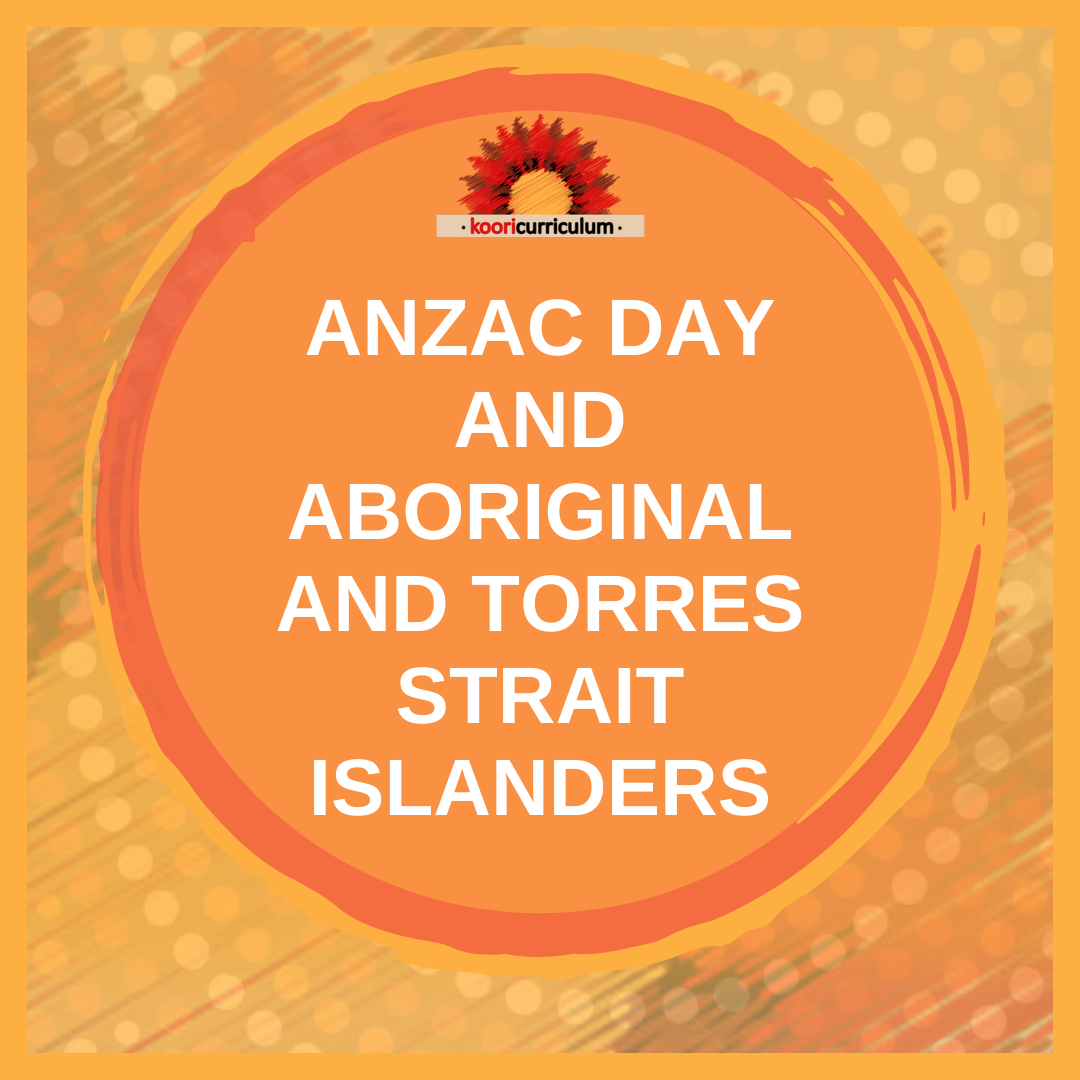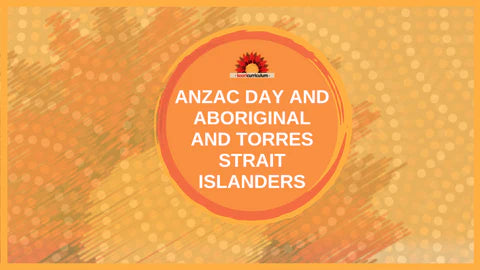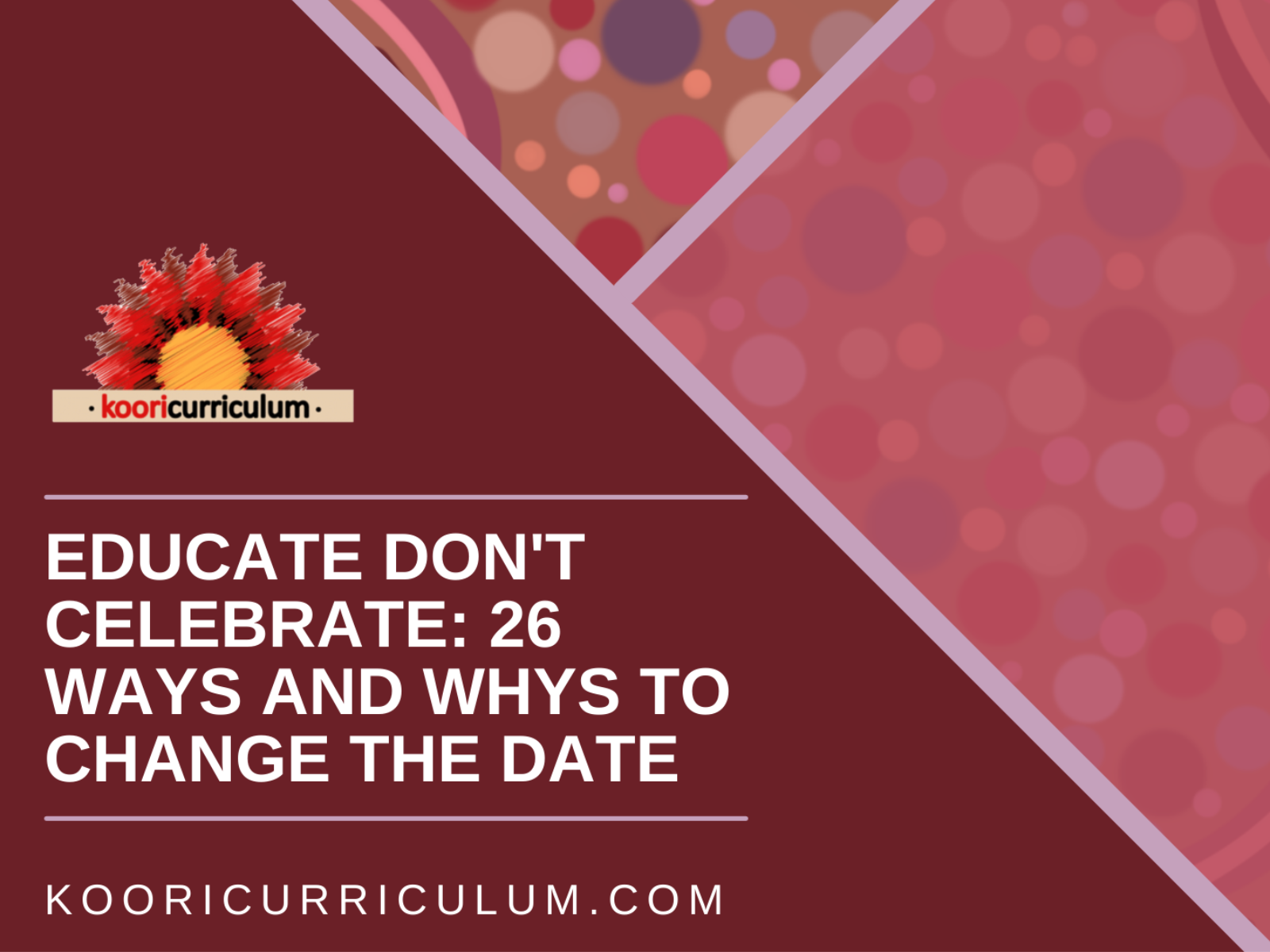
ANZAC Day and Aboriginal and Torres Strait Islanders

Did you know that over 800 Aboriginal and Torres Strait Islander diggers served in the First World War? And around 3,000 in WWII? Some even served in the Boer War!
Of course, we don’t have accurate figures (you didn’t have to declare your cultural background when you enlisted to serve) but attempts are being made to clarify this number by organisations such as the Aboriginal and Torres Strait Islander Veterans and Services Association and the Australian War Memorial.
It was technically illegal for Aboriginal and Torres Strait Islanders to enlist during WW1. Because neither group was recognised as Australian ‘citizens’ and only Australian ‘citizens’ were allowed to fight for Australia, technically they couldn’t enlist. But so great was the need for soldiers that the Defence Force overlooked this requirement! In 1917, a change was made to the law to allow “half-castes” to enlist.
Why did they bother enlisting? Much of this is lost to history but probably a mix of loyalty, patriotism and a chance to receive living wages.
We now know the stories of some of the Aboriginal soldiers who fought. We also know that on return to Australia, these soldiers were often treated with the same disregard as other Aboriginal and Torres Strait Islanders. We know that soldiers bought back virulent influenza that swept around the world in 1919 and many Aboriginal communities were decimated when the flu was introduced by returning soldiers.
We also know that many Indigenous veterans had their wages stolen. Others who died were never given a Defence Force burial or grave. Of course, none were allowed into RSL clubs! For the majority of black diggers, it was hard to go from being treated equally while in the war to being treated unequally when they returned home.
And the inequality is not over yet. Just last month the Western Australian Branch of the RSL introduced a ban on Welcome to Country and Acknowledgement of Country ceremonies as well as the flying of the Aboriginal flag at Anzac Day ceremonies in Western Australia. Why? Because some RSL members were unhappy that the Ode of Remembrance was translated and delivered in Noongar at an ANZAC ceremony at Fremantle last year.
A large public uproar saw this unpopular and iniquitous decision overturned.
Given that Aboriginal and Torres Strait Islanders fought for Australia as non-citizens, recognising the traditional owners of the land on which ANZAC day ceremonies are delivered seems the least white Australia can do. Well, that and recognising that Aboriginal and Torres Strait Islander soldiers make up part of the ANZACS that are being remembered.
Image courtesyhttps://aiatsis.gov.au/explore/articles/war-service



